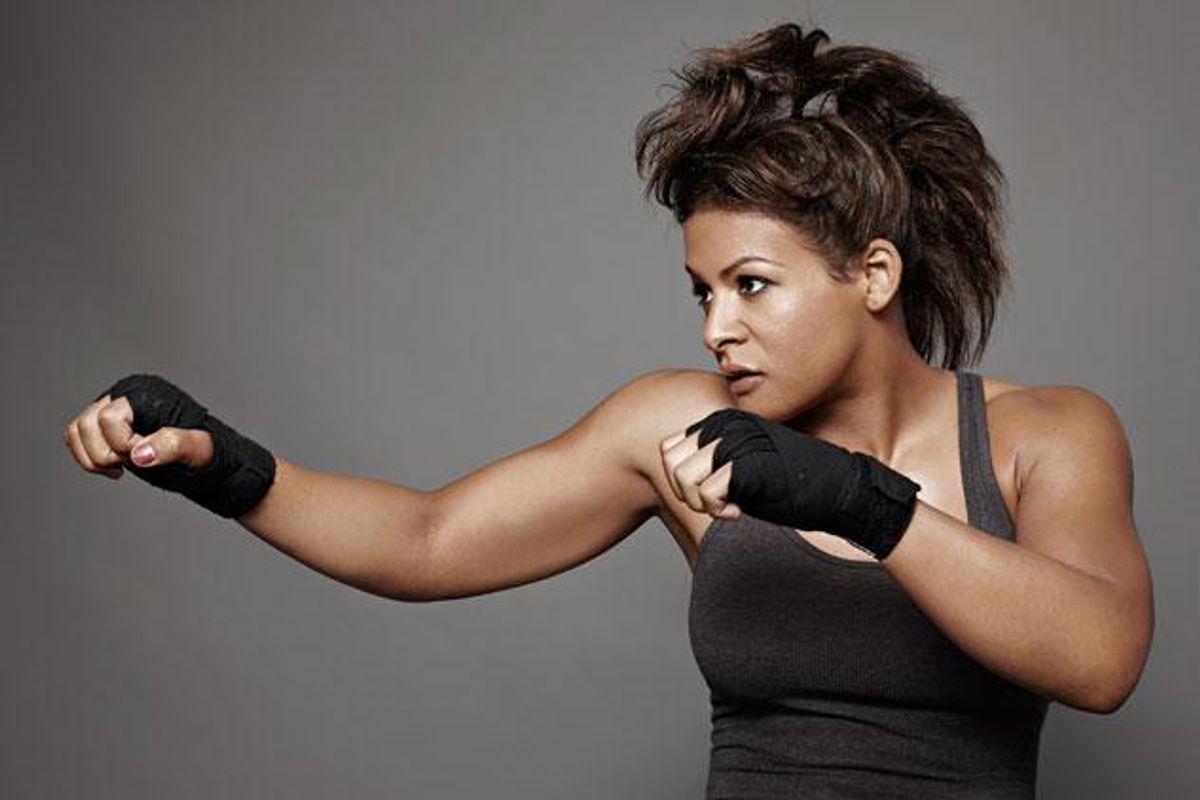Sports
UFC Women's Champ Refuses to Fight Trans Athlete Fallon Fox

Ronda Rousey won't fight Fox because she claims trans women have an 'unfair advantage' in mixed martial arts competition
July 16 2015 7:19 AM EST
November 04 2024 11:22 AM EST
By continuing to use our site, you agree to our Private Policy and Terms of Use.

Ronda Rousey won't fight Fox because she claims trans women have an 'unfair advantage' in mixed martial arts competition
Fallon Fox | Photography by Roger Erickson
Ultimate Fighting Champion women's bantamweight leader Ronda Rousey, who was undefeated in her last 10 professional fights, recently told TMZ she could "knock out anyone in the world" but wouldn't fight a transgender woman.
"It's a case-by-case scenario thing," Rousey explained of squaring off against trans fighter Fallon Fox. "I've tried to research it a lot. I feel like if you go through puberty as a 'man' it's not something you can reverse. ... There's no undo button on that."
Since coming out as a transgender woman last year, Fox has faced similar claims yet remained undeterred. The 38-year-old fighter, like other trans advocates and medical professionals, has pointed out that trans female athletes who undergo hormone treatment face a disadvantage in bone strength and muscle density. In an op-ed forThe Advocate this summer, Fox took aim at the problematic claim that a transgender woman is "born a man."
RELATED | FALLON FOX: Queen of Swords
Fox, who has won five of her last six professional fights, responded to Rousey's comments on Facebook this Saturday, saying, "I'm quite sure that there are quite a few female MMA fighters who have the guts to fight another skilled woman without peeing their panties. ... I think they may be a little more mentally tough and say, 'I'll fight a trans woman, just like I'll fight a lesbian woman or a black woman.'"
"They may throw all kinds of backwards, bogus bone density or bone structure arguments in it to possibly save face if they lose -- because they sense that people are ignorant on bones within sport," Fox continued. "But at least some of them are the real deal in the way of fighting."
Last year UFC president Dana White shared his opinion on trans female fighters being allowed to fight cisgender (nontrans) fighters, saying, "Bone structure is different, hands are bigger, jaw is bigger, everything is bigger. I don't believe in it."
The Toronto Sun notes that Rousey and Fox's debate may ultimately be decided by White, who also serves as Rousey's boss.
Nevertheless, growing consensus among medical professionals who provide health care for transgender people is that after several years of clinical treatment, including hormone therapy and sometimes gender-affirming surgeries, transgender women have musculature and bone structure that is largely similar to their cisgender counterparts', giving them no substantial "advantage" over their colleagues in their chosen sport.
In 2004 the International Olympic Committee adopted what is known as the Stockholm Consensus, the policy that opened the door for transgender athletes to compete in the Olympic Games. Earlier this year the California State Athletic Commission began hearing public comment on possibly enacting a similar policy to regulate the participation of transgender athletes in professional athletic events.